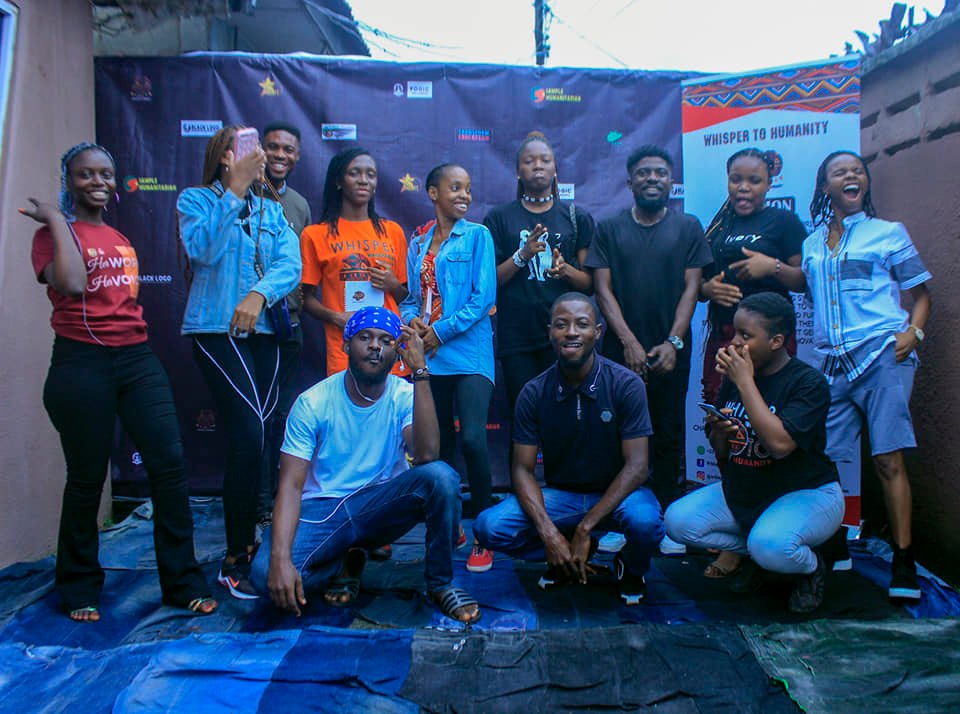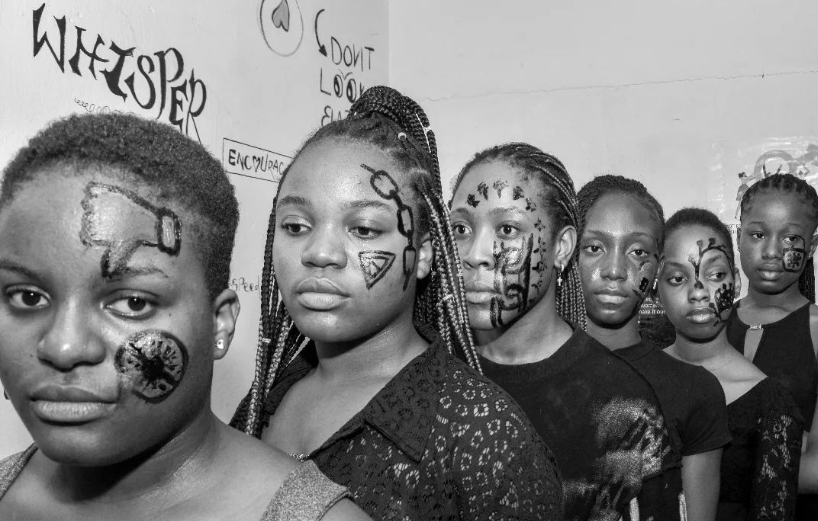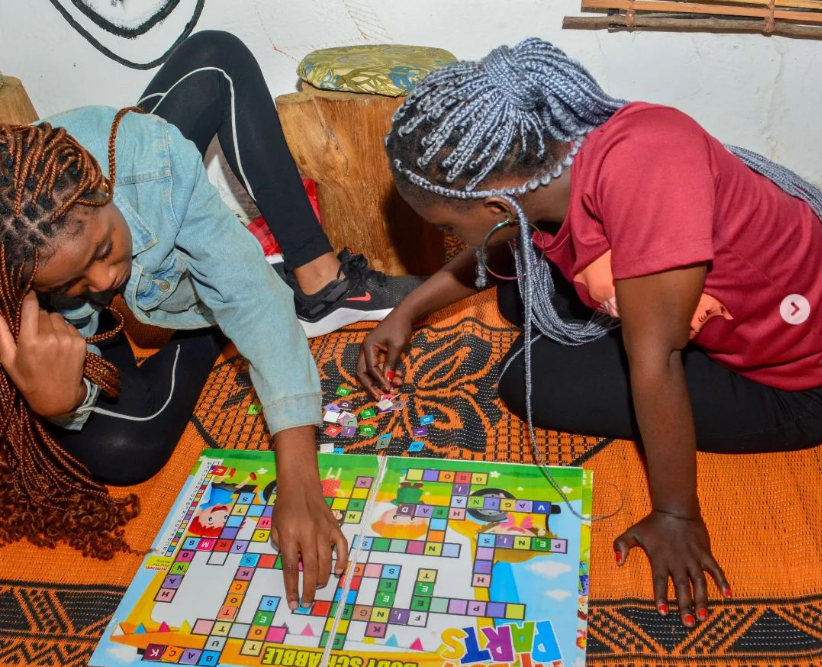Minds of the Movement
An ICNC blog on the people and power of civil resistance
by Maryjacob OkwuosaOctober 13, 2023
At age 16, I initiated a youth education group, touring high schools and supporting struggling high schoolers. It was the prime of my organizing, and to date, I wish the group had had a structure and stable leadership that enabled it to hang on better after I left. But movement leadership is a dance, and it takes time to learn the steps.
Being part of and eventually leading Activista Nigeria, a massive youth movement with a membership of over 10,000 young people, I saw and embodied the movement's vision. As much as my experience with Activista informed my vision while initiating Whisper To Humanity in 2020, I have come to realize that for a movement to thrive with its peculiarities, leadership must be intentional and take a great deal of information into account.
In the three years of Whisper's existence, we have enjoyed a great number of achievements as much as we have lost committed comrades. It made sense to engage in activism when it was about the need to make lives better and put an end to injustice, but being an activist is really difficult—and when some members feel sidelined as a result of poor leadership, it can destroy the whole movement.
In this post, I share some of the learnings I've gained throughout the years about movement leadership. The target readers are movement actors who wish to engage more effectively in leadership, whether that means reassessing leadership structure at important junctions, creating unity, making calls on the limitations of organizing, or rekindling the movement’s flame.

"We Make the Unusual Usual!" For 2022 International Youth Day, Whisper to Humanity made the first creative jean hangout, an informal space for its members to have fun and fabricate something together: a denim rug. Credit: Whisper to Humanity.
Learning #1: Reevaluate leadership structure and organizing processes after every major movement event.
The stage of reevaluation is as important as the start of the movement itself. With the actualization of small and big wins, comes the tender stage for a movement's survival and struggle to remain relevant. This ultimately requires that leaders sit down to discuss what has been working, what has not and what is next. It is important to take this step after a movement’s activities have been suddenly altered, for example by a big win or an episode of repression.
In 2015, the Activista movement at Ebonyi State University organized nonviolent actions to demand more gender-responsive public service delivery at the university. Our activities drew the attention of the state government and school administration. We were ultimately successful in achieving our goals. However, victory came with a price.
16 Days of Activism pic.twitter.com/J9hVQsvIFn
— WHISPER TO HUMANITY (@WHISPEREQUALITY) November 28, 2022
We paid courtesy visits to the school administration, shared testimonies of student abuse in school spaces and organized a walk across the four university campuses during the 16-day campaign. Our mission was clear! To have a better security system on school campuses, renovate student hostels and install lights inside the schools to enable safe night reading and getting around.
This was huge progress for the movement, and in the midst of celebrating the achievements came a tussle for leadership. At the time, Activista did not have any particular leadership structure in place. Many members became interested in controlling the narrative and owning the process, which tore the movement apart. Biases were overpowering the vision.
What could we have done differently? We could have considered a co-leadership model and built more buy-in for our vision and needs of the movement. We could have held open discussions from the beginning about how our collective interests are more important than individual power and control. We also could have invested time in bringing activists together in informal spaces to create a stronger sense of community, instead of just coming together to plan and execute actions.

A creative collective, Whisper to Humanity commemorated the World Photography Day by making a story of their existence. Credit: Whisper to Humanity.
Learning #2: Cross-border organizing has its limitations, and different geographical settings require different approaches.
Cross-border campaigning changes what is at stake for movements in terms of leadership and impacts. There are many benefits to organizing across borders, but it's important to understand the limitations.
My first cross-border organizing experience was with Activista. Having our identity and capacity in Nigeria was powerful, but knowing we were part of something bigger across borders meant a lot more for me and for the movement. We couldn't decide what happened in other nations, nor could they decide for us, but our exchanges empowered us all to face movement challenges together. Leading campaigns together meant that we had more power, a larger audience and a louder voice.
However, this doesn't mean that everyone in a cross-border coalition should be operating in the same ways. In October 2022 (and still ongoing), leveraging our social media platforms, my team at Whisper led a cross-border campaign to expand the work we do as a movement while maintaining our individuality across our nations. This led to expansion from Nigeria into seven other African nations.
The cross-border campaign for gender transformative education is a full-year campaign led by young feminists. It aims to initiate conversations with teachers and education ministries to make the education systems safer, more equal and better suited to the needs of this generation of learners. In creating feminist school clubs and playful spaces in schools, we are sharing the image of what a gender-transformed education system would look like.
For this major process, we have learned and are still learning how to ensure that, as much as our work started in Nigeria and can serve as a reflection on what can work, it should not determine what happens for teams in other countries. They are organizing in different contexts, so the best way we can lead is to share our tools, approaches and insights, while giving the other teams space to modify these to resonate with their sociocultural realities and operate the ways they feel they should.

Playing games and constructing art together as a movement are rallying exercises. Credit: Whisper to Humanity.
Learning #3: Gamification and art can help rekindle a movement's flame in the face of expansion or adversity.
Reading and playing the games from Beautiful Trouble's website have played a huge part in the amazing work Whisper To Humanity has done. It is always empowering to read the stories and practical actions of other movements and platforms across the world. Some of the stories on Beautiful Trouble's website resonate with our realities and some push us to do more, to widen our creativity and to do better.
Pop culture is exciting and instructive. We cannot deny the impacts that popular music, films, art and other forms of entertainment have on society. My team and I have created feminist games, mobile safety apps, audio dramas and street art as a form of our ARTivism. Similarly, Chalk Back is building a massive movement of young people, using chalk art on the street to speak up against street harassment.
Playing games and constructing art are rallying exercises that bring people together and stimulate active participation. In developing and bringing our innovative ideas for advocacy to life, we connect better, play together and learn coping mechanisms. In fun, relaxed processes like playing, we can grow teams that gradually decentralize into tiny bits of magic, creating different sounds for the same music.
-
We all become leaders of social change in our own ways, dancing together in harmony for a more just world.

Maryjacob Okwuosa
Maryjacob Okwuosa is a Nigeria-based intersectional feminist and education advocate, passionately working to bridge gender and accessibility gaps in education using crude innovative approaches, youthful ARTivism and different forms of creative entertainment. She is the founder of Whisper to Humanity and creative director and writer who explores the use of art in advocacy.
Read More